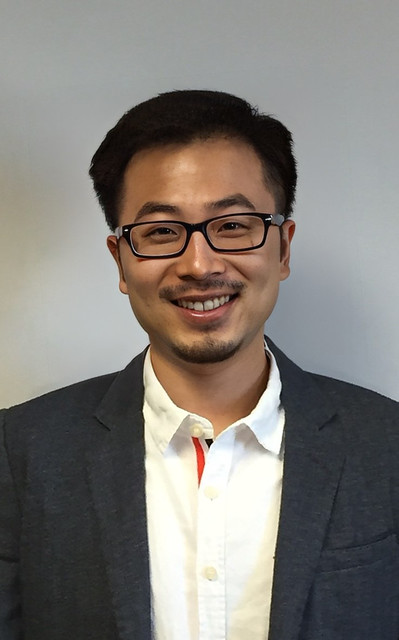From taxi sharing to insider trading?
Article body
The acquisition and exploitation of private information in U.S. capital markets has been an issue since the early days of Wall Street. While regulators have increased efforts to eliminate corporate misbehavior before disclosure statements go public, methods some mutual fund managers have used to gather information from local firms may have become very creative.
How creative? They simply call a taxi.
Auburn University Harbert College of Business finance professors David Cicero and Albert Wang’s co-authored study, “Taxi! Do Mutual Funds Pursue and Exploit Information on Local Companies?” examined data obtained from the New York City Taxi and Limousine Commission from 2009-16 and identified more than 500,000 recorded trips between 266 mutual fund offices and 244 public firm headquarters in Manhattan.
Neither phone nor email records are left behind. Instead, information can be shared face-to-face—before it goes public—and research suggests that some fund managers may be obtaining superior information through the relationships they build by visiting local companies. It was discovered that only those funds in New York City that frequently visit local companies via taxi overweight local firms in their respective portfolios, and firm visits were associated with superior investment performance, the paper reported.
“These trips appear to be elevated a couple of weeks before earnings announcements,” Cicero, the Bray Distinguished Associate Professor in Finance, said. “Insiders tend to know a lot from the end of the quarter up until earnings are released that the rest of the world does not know. What do fund managers do if they get this information? It appears some managers may try to obtain useful but not widely known information and use it to their advantage when managing their portfolios.
“This study ties into a fundamental question of financial economics…are fund managers able to outperform the markets? Should clients be paying the fund managers fees because they are good at their jobs? Or do the fund managers focus more on taking advantage of their position in the financial system? Even in this small area where it looks like local fund managers may have outperformed their non-local peers, our evidence suggests that the reason they’re outperforming some of their peers is they may be obtaining beneficial information that is not widely known.”
Past research has not produced a significant amount of solid evidence to suggest that portfolio managers regularly earn their fees from clients because they have a track record of consistently being superior at picking stocks. So then, what is the true value created by the typical fund manager? Are they providing significant value to the marketplace or, as this new research suggests, are they more focused on using knowledge about the marketplace that has been gained due to their position in the financial system?
Who would have thought to trace taxi rides between mutual funds offices and corporate firms in New York City in hopes of uncovering potential insider trading? A former student in Harbert College’s doctoral program in finance, Shen Zhang, now an assistant professor in finance at Troy University and co-author on this paper, brought this revelation to the attention of his mentors at Harbert College, and the idea for a new research paper was born.
“Shen came to us and said, ‘I was able to uncover this interesting data. I don’t know what to do with it, but it’s pretty interesting,” Wang, the J. Stanley Mackin Distinguished Associate Professor of Finance, said. “The three of us sat down, and we began this research project. It's a huge amount of data—millions of taxi records. We had to run our analysis on the supercomputer managed by the Samuel Ginn College of Engineering.”
Zhang recently presented this paper, which was also part of his doctoral dissertation at the Harbert College two years ago, at the Western Finance Association’s 2021 Conference. It is considered to be among the nation’s premier finance conferences.
“This is a real feather in the cap for our Ph.D. program, as Shen is a member of our inaugural class. One of the important goals of the program is to teach our doctoral students to conduct high-quality, academically rigorous research that will be accepted in elite finance conferences/journals,” Wang said. “When he started talking with us about this research opportunity, we worked closely with him to frame the research question and push it forward to achieve that goal.”
The researchers hope their paper will not only shed light on potential insider trading practices, but provide regulators another source to help keep the system fair.
“Our paper could serve as a helpful piece to the Securities and Exchange Commission or the government,” Wang said. “If there’s enough evidence suggesting managers may be doing something they’re not supposed to do, then that could prompt them to look into taxi records or investigate more carefully any other means by which fund managers could gain information from corporate insiders.”
(Written by Joe McAdory)
Related Media
Media interested in this story can contact Communications Director Preston Sparks at (334) 844-9999 or preston.sparks@auburn.edu.
Auburn University is a nationally ranked land grant institution recognized for its commitment to world-class scholarship, interdisciplinary research with an elite, top-tier Carnegie R1 classification, life-changing outreach with Carnegie’s Community Engagement designation and an undergraduate education experience second to none. Auburn is home to more than 30,000 students, and its faculty and research partners collaborate to develop and deliver meaningful scholarship, science and technology-based advancements that meet pressing regional, national and global needs. Auburn’s commitment to active student engagement, professional success and public/private partnership drives a growing reputation for outreach and extension that delivers broad economic, health and societal impact.







